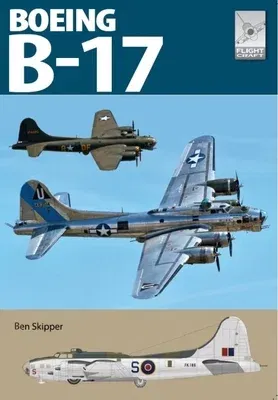The B-17 Flying Fortress, a term coined by a Seattle Daily Times report
in 1935, was a quantum leap in offensive air power. Designed for a
nation whose foreign policy was still deeply isolationist, and an Air
Corps whose in-service bomber fleet was dominated by bi-planes, the
B-17, with its four engines, huge wingspan, enviable payload - almost
double that of contemporary bombers - and all metal construction,
ushered in a new age.
For an aircraft of its size and relative complexity the B-17's design
and development was heralded by a host of key innovations with the
unveiling of the XB-15 (Boeing 294), including engine access crawl ways,
enhanced endurance and massive load capacity. Within a year the Y1B-17
or Model 299 had refined ideas from the XB-15 and produced a sleek,
attractive-looking aircraft. By 1937 all testing had been completed and
the first 12 aircraft were delivered to 2nd Bombardment Group for
assessment.
At the start of the Second World War the still-new B-17 was just
beginning to fill the ranks of US bomber squadron's and by early 1941
the B-17C, arguably the fastest B-17 built, was flying in RAF Service.
The B-17 was soon flying over Europe with the newly-created United
States Army Air Forces, as well as taking the fight to the Japanese in
the Pacific and to the Axis in the Mediterranean.
When production of the B-17 was halted in April 1945, at which point the
B-17 had been supplanted by the B-24 in the Pacific, over 12,700 B-17s
had been built. The type would bow out as a bomber not long after the
war's end, though a few would soldier on as SB-17 air-sea rescue
aircraft. Ultimately the B-17 would fly with 26 countries.
This Flight Craft title offers the modeler an exciting selection of
photographs, illustrations and showcase examples to help build their own
version of this icon of the skies.

